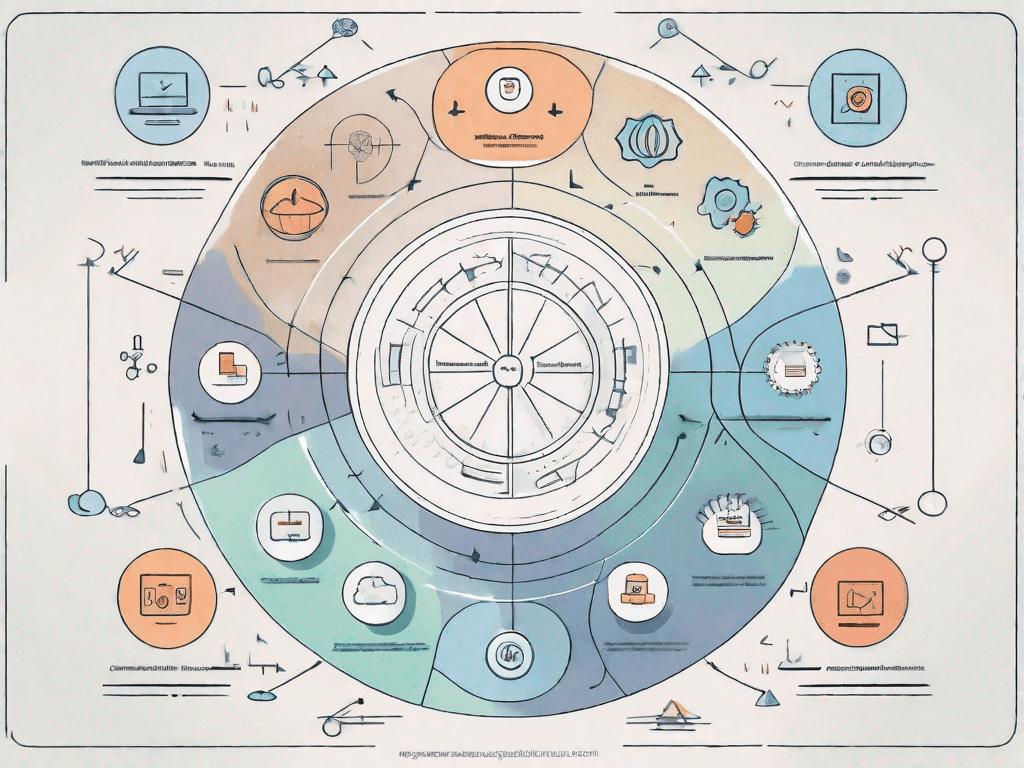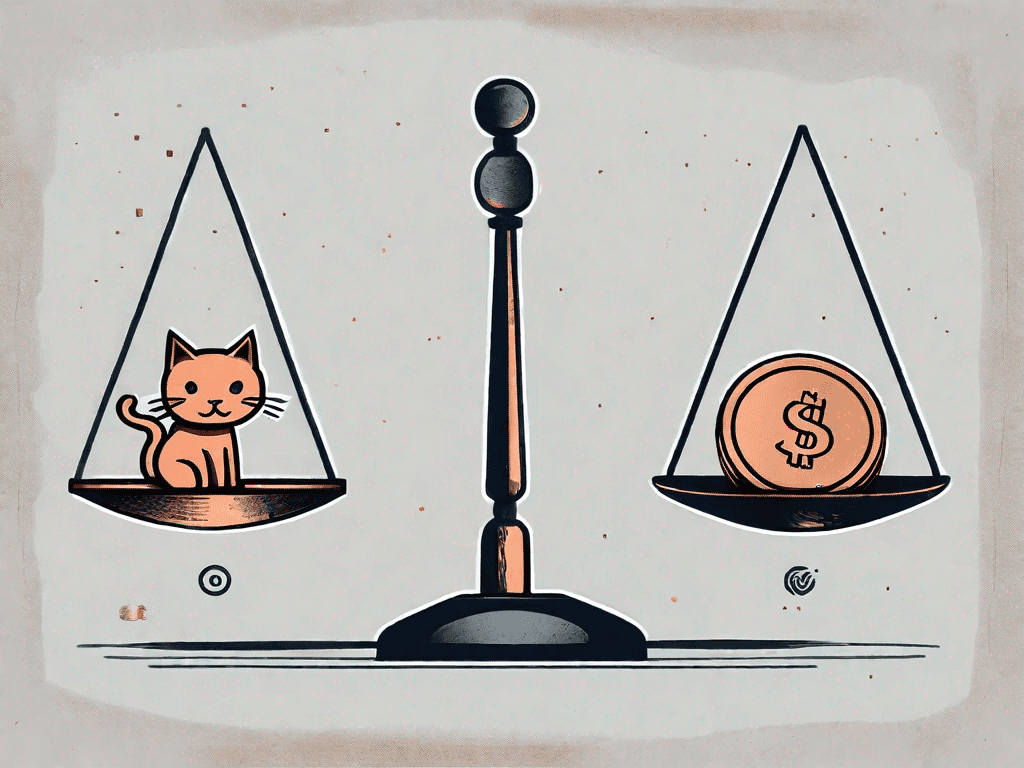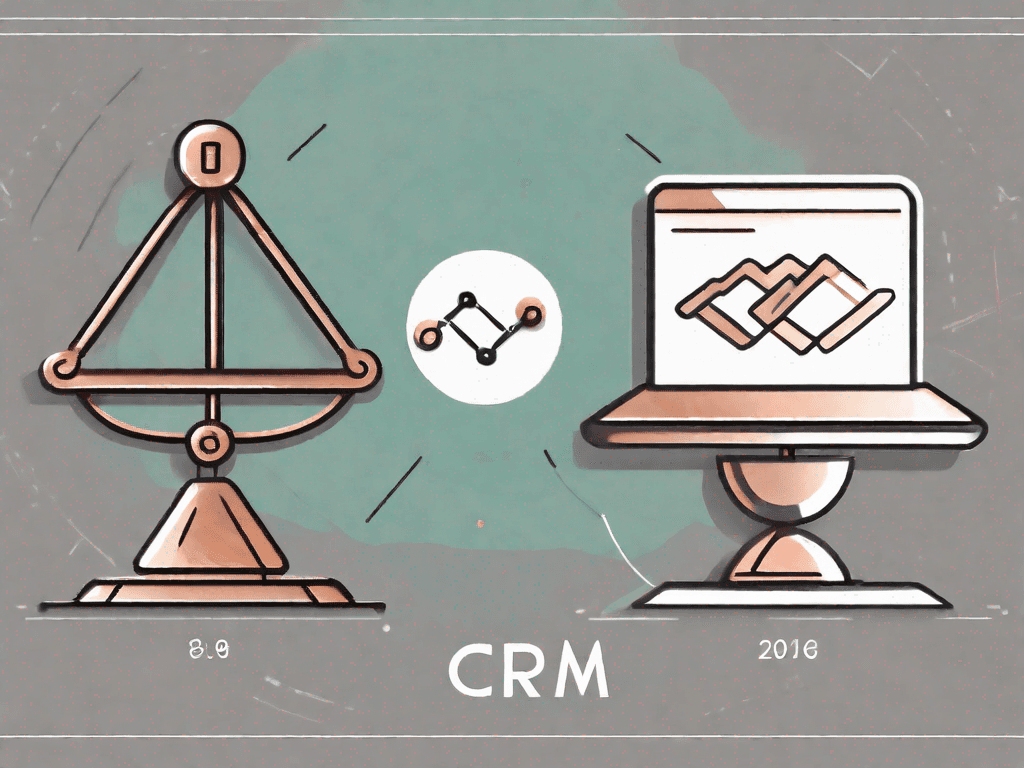
Close CRM vs noCRM: Which CRM is the Best?
In the realm of customer relationship management (CRM) software, there are numerous options available. Two popular choices are Close CRM and noCRM. Both platforms offer a range of features and capabilities to enhance the efficiency and effectiveness of your sales and marketing efforts. However, when it comes to deciding which CRM is the best fit for your business, it's crucial to consider a variety of factors. This article will delve into the pros and cons of Close CRM and noCRM, examine the pricing options, compare integrations, and ultimately help you determine the best CRM solution for your specific needs
Pros and Cons of Close CRM and noCRM
When it comes to choosing the right CRM platform for your business, it's important to carefully consider the pros and cons of each option. In this article, we will explore the advantages and disadvantages of Close CRM and noCRM, two popular choices in the market.
Close CRM
Let's start by taking a closer look at Close CRM. This platform has gained popularity among sales teams for its intuitive user interface and robust feature set. With Close CRM, sales professionals can effectively manage their leads and streamline their workflows.
One of the standout features of Close CRM is its seamless integration with popular communication tools such as email and phone systems. This integration allows for easy tracking of communication throughout the sales process, ensuring that no important interactions are missed.
Close CRM also offers advanced reporting and analytics capabilities, providing businesses with valuable insights to make data-driven decisions. The platform's reporting features enable users to track key metrics, analyze sales performance, and identify areas for improvement.
However, it's important to note that Close CRM may not be the most cost-effective solution for all businesses. Small businesses or startups with budget constraints may find the pricing of Close CRM to be a limiting factor.
Additionally, while Close CRM offers a range of integrations, it may not have as extensive a library as some of its competitors. This could be a drawback for businesses that rely heavily on specific third-party applications.
noCRM
Now, let's turn our attention to noCRM, another popular CRM option. This platform is specifically designed for salespeople who prioritize simplicity and ease of use.
noCRM stands out for its straightforward and streamlined interface, which allows users to focus on the essentials without getting overwhelmed by unnecessary features. The platform's intuitive design makes it easy for sales teams to navigate and quickly access the information they need.
Another advantage of noCRM is its excellent customization options. Businesses can tailor the CRM to their specific needs, ensuring that it aligns with their unique sales processes and requirements. This level of customization can greatly enhance productivity and efficiency.
However, it's worth noting that noCRM may not be the ideal choice for businesses that require advanced reporting and analytics capabilities. While the platform provides basic reporting features, it may lack the depth and complexity needed for in-depth analysis.
In addition, noCRM's simplicity, which is a strength for many users, may also be a limitation for larger businesses or enterprises that require more complex features. These organizations may find that noCRM does not offer the scalability and advanced functionality they need to support their operations.
Conclusion
In conclusion, both Close CRM and noCRM have their own unique set of advantages and disadvantages. Close CRM excels in offering a comprehensive set of features, seamless integrations, and advanced reporting capabilities. On the other hand, noCRM stands out for its simplicity, ease of use, and excellent customization options.
Ultimately, the decision on which CRM is best for your business will depend on your specific needs, budget, and preferences. It's important to thoroughly evaluate both options and consider factors such as the size of your business, the complexity of your sales processes, and the level of reporting and analytics functionality you require.
By carefully weighing the pros and cons of each CRM platform, you can make an informed decision that will empower your sales team and drive business growth.
How does Close CRM pricing compare to noCRM?
When considering CRM platforms, pricing is a critical factor to evaluate. Let's take a closer look at the pricing options offered by both Close CRM and noCRM.
Close CRM Pricing
Close CRM offers a range of pricing tiers, catering to businesses of all sizes. Their plans include Essential, Professional, and Business, with each tier offering different features and capabilities. The pricing for Close CRM starts at $35 per user per month for the Essential plan and goes up to $145 per user per month for the Business plan. The various tiers provide flexibility for businesses to choose a plan that aligns with their requirements and budget.
noCRM Pricing
noCRM also offers multiple pricing tiers to cater to businesses with varying needs. Their plans include the Starter, Expert, and Enterprise, each with its own set of features and capabilities. The pricing for noCRM starts at $12 per user per month for the Starter plan and goes up to $49 per user per month for the Enterprise plan. The different tiers allow businesses to select a pricing option that aligns with their budget and requirements.
Pricing Comparison
When comparing the pricing of Close CRM and noCRM, it's important to consider the features and capabilities included in each plan. While Close CRM may be more expensive, it offers a broader range of advanced features that may be beneficial for larger businesses. On the other hand, noCRM provides a more affordable pricing structure, making it an attractive option for small businesses or startups with limited budgets.
Ultimately, the decision regarding pricing will depend on the specific needs and budgetary considerations of your business.
How do Close CRM integrations compare to noCRM?
Integrations play a crucial role in CRM software, allowing businesses to connect their CRM with other tools and platforms they use regularly. Here, we will examine the integration capabilities of both Close CRM and noCRM.
Close CRM Integrations
Close CRM offers a wide variety of integrations with popular tools and platforms such as Gmail, Outlook, Slack, and Zapier. These integrations enable users to seamlessly connect their CRM with their preferred communication, productivity, and automation tools, thereby enhancing workflow efficiency and productivity.
noCRM Integrations
noCRM also provides a range of integrations, although the selection may be more limited compared to Close CRM. Popular integrations available with noCRM include Google Workspace, Microsoft 365, and Mailchimp. While the number of integrations may be more limited, noCRM ensures that the essential tools are supported, allowing businesses to streamline their workflow effectively.
Which one is the Best for You?
Now that we have explored the pros and cons of Close CRM and noCRM, as well as their pricing and integration options, let's consider which CRM solution is the best fit for different types of businesses.
The Best for Salespeople
If you prioritize simplicity and ease of use, noCRM may be the best CRM option for you. Its streamlined interface and customization options make it ideal for salespeople who want a CRM that focuses on the essentials without overwhelming complexity.
However, if your sales team requires advanced reporting and analytics capabilities or if budget isn't a concern, Close CRM may be the better choice. Its comprehensive feature set and seamless integrations make it an effective CRM for sales teams looking for robust capabilities.
The Best for Consultants
For consultants, it's essential to have a CRM that allows for easy communication tracking and efficient lead management. Close CRM's advanced reporting and comprehensive feature set make it an excellent choice for consultants who require in-depth insights and analysis to optimize their workflow and convert leads into clients.
The Best for Digital Marketing Agencies
Digital marketing agencies may benefit from the customization options provided by noCRM. This allows agencies to adapt the CRM to their specific workflows and client management needs. Additionally, noCRM's affordability makes it an attractive choice for agencies that want a cost-effective solution without compromising essential functionality.
In conclusion, the best CRM option for your business will ultimately depend on your specific needs, budget, and preferences. While Close CRM offers a comprehensive set of features and extensive integrations, noCRM stands out for its simplicity and affordability. Consider the requirements of your business and carefully evaluate the pros and cons of each platform to make an informed decision that aligns with your goals and objectives.









![The 8 Best Social CRM Software in 2025 [Comparison]](https://framerusercontent.com/images/RYHyYapdgIi83BEWtMdX418.png)
![The 6 Best LinkedIn CRM in 2025 [Comparison]](https://framerusercontent.com/images/Luywfni7ZKjb19yghbhNPy4I4qQ.png)




![The 5 Best Twitter CRM [Comparison]](https://framerusercontent.com/images/EWcbvYnVZglJLO8jp3OlHkTvsHo.png)



























































































































































































